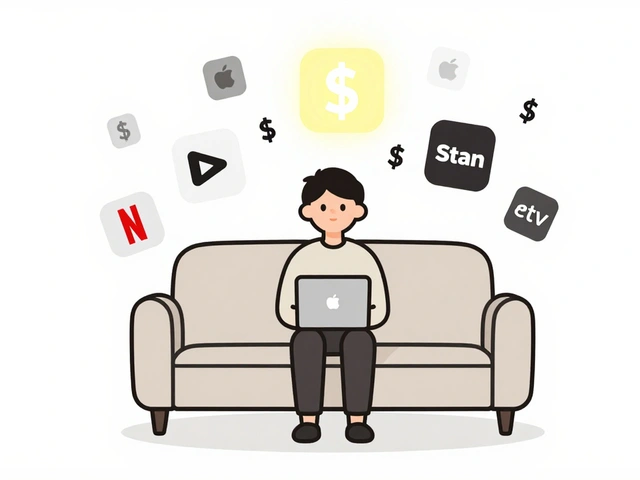13
Pharmacogenetics: Why Your DNA Could Change Your Medicine Forever

Ever wondered why that friend who swears by a certain painkiller walks around like Superman, while you still clutch your throbbing head in misery? Or how that aunt’s antidepressant works magic for her, but leaves someone else sluggish and foggy? It’s not luck—or even your diet. It’s something hidden deep in your DNA. Pharmacogenetics is cracking the code on how our genes change the way we all react to medicines, and it’s reshaping everything we thought we knew about prescriptions.
What is Pharmacogenetics and How Does it Work?
Pharmacogenetics—say that five times fast—means the study of how our unique genetic makeup influences our response to certain drugs. Basically, scientists discovered we’re not all built the same on the inside. That means two people given the same pill might experience completely different results. Why? Because our bodies make enzymes and proteins, which are coded by our genes, and those tiny differences can change how a drug acts or how quickly it gets broken down.
The roots of pharmacogenetics go back to the 1950s, but the field exploded once DNA sequencing became cheaper and faster in the last 20 years. With a simple spit or cheek swab, researchers can now scan for key genetic variants—tiny changes in your DNA code. Some of the most famous genes studied are from the CYP450 family, which handle over half of all prescription drugs. For example, a gene called CYP2D6 can make you process drugs really fast, really slow, or somewhere in between. That’s why some people need a higher or lower dose, or should even avoid certain medications altogether.
Here’s a wild fact: over 90% of people carry at least one gene that affects how some medicines work. It’s not rare at all—it’s totally normal to have your own unique prescription ‘fingerprint’. Scientists have linked more than 350 genes to drug response so far, and that number keeps growing.
Want to know how your genes impact commonly prescribed drugs? An example is codeine, a painkiller that’s worthless for some folks and dangerously strong for others. If your genes make you a ‘fast metabolizer,’ codeine turns into morphine super quickly—too much, too soon. If you’re a ‘slow metabolizer,’ you barely feel its effects. The FDA now recommends genetic testing in certain cases to make sure people get the safest choice.
Genetic testing for drug response is now available off-the-shelf at clinics and through some home DNA kits, although full medical decisions should always involve a doctor. Imagine a future where your prescription comes with a note: “Based on your DNA, this dose is just right for you.” That future’s starting to arrive.
Why Your Genes Matter When Taking Medication
Doctors used to prescribe drugs using a “one-size-fits-all” approach. But when you look closely, that’s more like flipping a coin. Studies have shown that only about half of patients get the expected results from the first medication they try. The rest either get little effect, or wind up with frustrating side effects. The World Health Organization has called adverse drug reactions a leading cause of hospital visits worldwide. Pharmacogenetics is helping to lower this risk by matching people with safer, more effective medications from the start.
Take antidepressants, for example. It can sometimes take months of trial and error to find an option that finally lifts the fog. Researchers at Mayo Clinic found that genetic testing helped doctors pick the right antidepressant on the first try up to 60% of the time—double the success rate without genetic info. Cancer drugs are another huge area; some work wonders only in patients with the right gene mutation, while for others, the same drug could be toxic.
The US Food and Drug Administration (FDA) now lists over 430 drugs with pharmacogenetic information in their labeling, advising doctors to consider a patient’s genetic test before prescribing. Among these are blood thinners like warfarin and clopidogrel, cholesterol drugs like statins, and even asthma medications.
Here’s a quick peek at the scale of the problem, with some real numbers:
| Drug Class | % of Patients Not Responding or Having Side Effects |
|---|---|
| Antidepressants | Up to 50% |
| Blood Pressure Meds | Approx. 40% |
| Cancer Drugs | From 25% to 75%, depending on type |
Pharmacogenetic testing helps doctors avoid this trial-and-error. No more guessing games, fewer prescription nightmares, and less wasted time and money.

Getting Tested: What to Know About Pharmacogenetic Testing
Thinking genetic testing sounds high-tech and intimidating? It’s easier than you think. Most pharmacogenetic tests only need a saliva swab or a quick cheek scrape—no big scary needles. Labs look for variants in a handful of key genes related to drug processing, such as CYP2C19, CYP2D6, and others. They’ll then send a detailed report that highlights which medicines your body can handle as expected, which doses might need adjusting, and which drugs could have higher risks.
Prices have dropped, too. While a full panel at a clinic can run anywhere from $150 to $500, insurance sometimes pays part or all of the cost if your doctor orders it for a medical reason. Home kits cost less, but many don’t analyze the most up-to-date or medical-grade markers—so read the fine print. While it feels futuristic, some big-name hospital systems already have routine pharmacogenetic testing as a part of their standard care. The Cleveland Clinic and Mayo Clinic offer this to patients who may need long-term drug therapy, especially for heart, cancer, or mental health medications.
Wondering if you should get tested? Here are some useful scenarios where it can really help:
- You’re starting a drug with a history of tough side effects or tricky dosing (like blood thinners, antidepressants, or epilepsy meds).
- Your family has a track record of bad reactions or mysterious failures with certain drugs.
- You have a chronic condition managed by several meds and want to avoid dangerous interactions.
- Your healthcare provider offers genetic testing as part of your care plan.
Testing isn’t a magic bullet. Genes are only one part of the puzzle—diet, age, other meds, and lifestyle still matter. But knowing your genetic profile is like having cheat codes to safer, more effective treatment. Some hospitals now keep a digital record of your pharmacogenetic results so any doctor in their system can see what works for you—even years later.
Challenges and Controversies in Pharmacogenetics
No good breakthrough comes without a dose of drama. Pharmacogenetics is no exception. For one thing, while the science is moving at light speed, regulations and insurance rules are trying to play catch-up. Not all doctors are trained to interpret genetic results, and some worry about overpromising what the testing can deliver. The FDA, for example, has warned that some direct-to-consumer genetic test companies put out reports that are not based on enough solid evidence yet. That’s a big reason why it’s smart to go through a healthcare provider you trust.
There’s also debate about privacy. Genetic data is the most personal info you can share, so the labs and clinics handling test results use strict security rules. The US has laws like GINA (the Genetic Information Nondiscrimination Act) to protect you from having your genetic test results used against you by employers or insurers. Still, sharing DNA data—no matter how good the intention—feels risky for a lot of people. If you’re getting tested, ask how your data will be used, stored, and whether it’s shared with others.
Cost used to be a huge barrier. Now, with the price dropping and insurance picking up the tab in more cases, it’s becoming more accessible. The real challenge now is making sure everyone—including underserved communities—gets the chance to benefit from these advances, not just folks living near big hospitals or who can afford the extra expense.
Last, there’s the question of how much genetics actually tells us. Sometimes people expect a genetic test to predict exactly how any medication will work, but reality’s a bit messier. Most drug reactions involve a mix of your genes, your environment, and other details like age, weight, or drinking habits. That said, for certain drugs, gene testing really does make a critical difference—especially when predicting dangerous or even life-threatening side effects.

The Future of Personalized Medicine
Scientists used to dream of a world where doctor visits felt like custom tailoring instead of a rack of randomly sized shirts. Pharmacogenetics is making that vision possible. Now, research is sprinting ahead with even more ways to blend data from your genes, your medical records, and even your wearable fitness trackers.
Already, some smartphone apps are merging your pharmacogenetic test results with your current medication list and sending live alerts if you’re prescribed something risky. Hospitals are building DNA-driven prescribing software that helps doctors pick the safest, most effective drug and dose in a few taps. Clinical trials are getting speedier, with researchers enrolling only people whose genes make them more likely to respond positively—saving time, money, and lives.
Looking ahead, it might become standard for everyone to get a genetic panel at birth and keep it with their health records for life. That way, your doctor isn’t blindfolded when writing a prescription—no matter what disease pops up. Some experts predict this could save the US healthcare system billions by slashing medical errors, fewer readmissions, and lowering the mountains of unused pills dumped every year.
A few tips to get ready for the future: If you’re on long-term meds, talk to your doctor about pharmacogenetic testing. Ask questions about your genes (if you have recent DNA results, bring them). And when a new prescription is suggested, check if it’s listed among drugs with known genetic effects—resources like the FDA’s Table of Pharmacogenomic Biomarkers in Drug Labeling make this easy.
Medicine has always been a bit of a guessing game, but now we’ve got a peek behind the curtain. Your DNA could hold the secret to better health, fewer side effects, and prescriptions that finally work for you—not just a neighbor, or a cousin, or the person in the next waiting room chair. The revolution’s here, and it’s written in code—your code.










Bob Buthune
July 17, 2025 AT 23:19I have to say, this whole idea of pharmacogenetics fascinates me to no end. 🌱 The fact that our DNA can decide if a medicine is going to work or fail is mind-blowing. Imagine the possibilities for personalized treatment plans that are actually effective and reduce unnecessary side effects. 😳
It also makes me think about how medicine has been kind of a one-size-fits-all approach for so long when we could do so much better by tailoring treatments to individuals based on their genetic makeup. This could transform healthcare for people with chronic illnesses or rare diseases where trial and error is exhausting and often dangerous.
What concerns me though is how accessible this technology will be. Will it be a luxury for the privileged or available to all? And how will privacy concerns be handled when it comes to genetic data? Still, the future sure sounds promising!
Kayla Ellsworth
July 18, 2025 AT 00:06Oh yeah, revolutionary medicine by reading your DNA — sounds like something out of a sci-fi flick. 🙄 Totally convinced this'll solve all our health problems, right? Or maybe it’s just another overhyped technology that big pharma will milk until we’re broke.
Pharmacogenetics sounds great on paper, but who’s going to be responsible for the ethical nightmare when the system inevitably messes up or when people are discriminated against because their genes aren’t 'optimal'? And I bet this will just make medical treatments more expensive.
Call me skeptical but I think we need to be cautious about how far we bury ourselves into genetic determinism without fully understanding the social implications. But hey, as always, I’m probably the contrarian in the room here.
Soham Dhruv
July 18, 2025 AT 22:20Hey folks, just dropping by to say I find this pharmacogenetics stuff very dope tbh. It’s like medicine finally catching up with tech trends — profiling drugs to suit your unique DNA blueprint.
Like, who hasn’t struggled with side effects or meds not quite doing their job? With this approach, that’s supposed to change big time. It’s kinda like having a coach who really knows you before starting the game. That perspective helps a lot when you think about how our bodies differ so much.
Still, it’s early days so I’m kind of curious about how quickly healthcare providers will get on board, especially outside of well-funded systems. What do you guys think — is this future medicine or just a nice idea that gets lost in implementation?
Noel Dhiraj
July 19, 2025 AT 23:20Absolutely fascinating topic! Pharmacogenetics is truly a game changer and the implications for public health are immense. It enables us to move from a reactive to a proactive healthcare model where individualized treatment minimizes adverse drug reactions.
I encourage everyone to consider how this could especially benefit populations with diverse genetic backgrounds who are often underrepresented in clinical trials. Tailored therapies could reduce health disparities significantly.
Of course, to realize this potential, robust infrastructure and patient education are critical. The more informed patients are about this field, the better they can participate in decision-making regarding their therapy. Let’s keep the momentum going and advocate for wider accessibility.
vidhi patel
July 21, 2025 AT 00:20While the potential of pharmacogenetics is intriguing, it is imperative to address the numerous grammatical inaccuracies in the dissemination of such scientific content that often lead to miscomprehension among readers.
Precision in language reflects precision in thought and ensures that readers, particularly those without a scientific background, grasp the nuances effectively. For instance, terms like 'medicine forever' must be contextualized properly to avoid misleading implications.
Moreover, there needs to be strict editorial oversight when discussing topics of such clinical importance. The field demands rigor not only in research but also in communication. It’s a matter of both ethics and public safety.
Priti Yadav
July 21, 2025 AT 14:13Guys, have you ever wondered if this whole pharmacogenetics revolution is just another way for governments and big pharmas to control the masses by collecting their DNA data under the pretext of personalized medicine?
I mean, what happens to all that genetic information once the tests are done? Are we really protected? Or is this a gateway to discrimination, surveillance, and more invasive control disguised as healthcare innovation? Seems fishy to me.
We should question why this technology is being pushed so hard now and who truly benefits from it. Stay woke and don't let them fool you with fancy headlines!
Ajit Kumar
July 22, 2025 AT 18:00One must reflect earnestly on the moral responsibility embedded within the advancing field of pharmacogenetics. It is not simply the technical or scientific breakthroughs that merit attention, but the profound ethical quandaries they introduce.
Every innovation in personalized medicine obliges us to contemplate how these advancements distribute benefits and burdens across society. Are we advancing justice by tailoring medicine according to genetic makeup? Or do we risk exacerbating existing inequities?
Furthermore, there is the inescapable duty to ensure that all scientific communication adheres to impeccable standards of clarity and precision. Only through such rigor can we preserve public trust and fulfill our communal obligations.
Diwakar Pandey
July 24, 2025 AT 11:40It's truly exciting to see how pharmacogenetics could change the game for so many. From what I've seen, this means fewer side effects and more effective meds, which everyone can relate to in some way.
But what's even better is that it encourages more inclusivity in medicine, by recognizing how different people metabolize drugs. This means treatments can be truly personalized rather than a generic approach for all.
Still, I think more awareness and discussion are needed so people understand the benefits and risks properly. What’s your take on how healthcare systems can better educate patients about this?
Geet Ramchandani
July 26, 2025 AT 05:20Seriously, this whole gene-based medicine idea sounds like a bunch of hype tailored to sell more expensive drugs under the guise of ‘personalization.’ How many times have we heard about revolutionary cures that end up being nothing more than corporate cash grabs?
And honestly, the article seems a bit too optimistic without talking about the real failures, like how some populations might be left behind because their genetic data isn't easily available or studied. Not everyone is going to benefit equally, and that’s not just science — that’s a social problem.
Until we see transparency and honesty from these companies and researchers, I’m sitting this one out as far as believing it's the miracle drug fix we’re all waiting for.
Pooja Kalra
July 27, 2025 AT 09:06An intriguing subject to ponder indeed. Pharmacogenetics not only challenges our conceptions of medicine but also invites a reconsideration of identity and autonomy when it comes to health decisions.
The intricacy involved in determining drug effectiveness based on genetic markers is substantial, yet it is precisely this complexity that fascinates me. It presents a new paradigm where medicine intersects with philosophy — how much of 'you' does the prescription truly address?
Nevertheless, one must approach such innovations with tempered expectations and critical thinking, ensuring that such advancements do not inadvertently reduce us to the sum of our genetic parts.